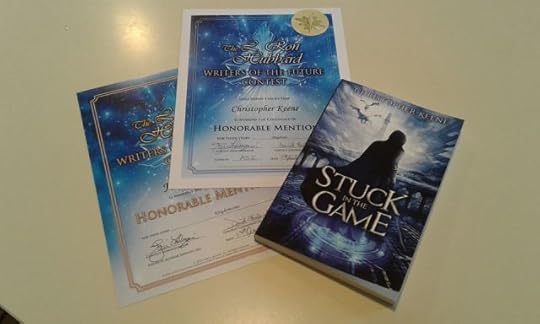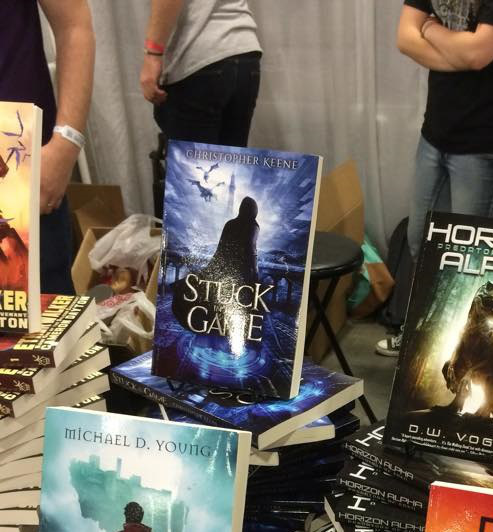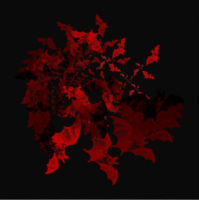Christopher Keene's Blog, page 15
September 16, 2016
Some Garbage I Found in my Letterbox Today
September 15, 2016
Luck Had Nothing To Do With It
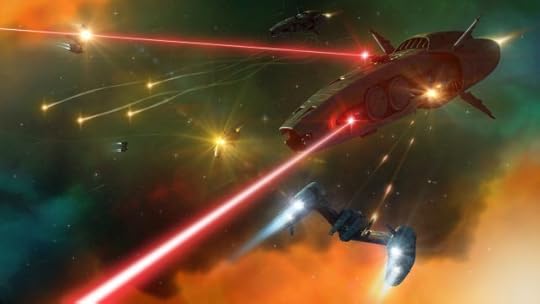 To say that Graf Straydor was the luckiest pilot in the world would be equivalent to saying that mayflies were lucky to have such short lifespans. He had survived more near-death encounters during battle than anyone else alive, all the more reason that his brief time on earth was so precious to him. However, the call he had gotten that morning confirmed for him what he’d already assumed. His short vacation was coming to an end.
To say that Graf Straydor was the luckiest pilot in the world would be equivalent to saying that mayflies were lucky to have such short lifespans. He had survived more near-death encounters during battle than anyone else alive, all the more reason that his brief time on earth was so precious to him. However, the call he had gotten that morning confirmed for him what he’d already assumed. His short vacation was coming to an end.
As his battle preparation ritual dictated, he strode across his room to the talkback transmitter, as naked as the day he was born. “On… Channel Eight.”
A flamboyant male voice came from the speaker on the wall. “…and what a battle it’s going to be with my hero and yours, Graf Straydor, once again fighting on the front lines! In honor of his many victories and close encounters, we are going to have you call in and tell us your favorite Graf stories. Surely by now everyone has at least one to share and we want to hear your favorite!”
Graf grinned and shook his head. A little ego stroking before an enemy engagement might raise his spirits. He twisted the knob until it was at max volume before heading to his bathroom ensuite. The heat lights came on automatically. He pulled the shower lever and stepped into the powerful spray, letting the steaming water cascade over his muscles and dampen his dark hair.
“Our first caller is the wife of a talmari mechanic and a vocal supporter of our military. Please tell us your favorite Graf story, ma’am!”
“Well, I heard from my husband…” A pause from the woman. “That… after he shot down several rattler ships, his own ship was so damaged that it could barely fly and yet he returned to the front line the very next day!”
“That’s right, no close call will frighten our champion away from a battle.” The announcer’s tone was dismissive, as though wanting to move onto a more exciting rumor. “Thank you for your story, ma’am. Next we have a young boy from western sector C. Young man, tell us your exciting story!”
When the timer clicked, the shower windows were completely fogged. The water coming out of the tap was suddenly infused with sudsy body wash. Bubbles quickly filled the shower and Graf used the scrubbing brush hanging on the bathroom wall to scrape away at them.
“Ah…ah, am I—?”
“Yes, you’re live, young man. Tell us a story about your hero.”
“Is it true that he was forced to crash land his talmari, and was eaten alive by a rattler, and then shot his way out from its belly with his laser ring?”
“Ha-ha, so I’ve heard. One of his best stories, I think!”
“I think so too!” the young boy replied.
As Graf squirted shampoo into his hair, he had to admit to himself that he didn’t fully recall the event. He remembered his ship going down, he always remembered that. Battle after battle he would take out a few rattler ships, and then he would get hit by a beam and begin to fall. His teammates would relay to him after he had awoken in a hospital bed how he had gone into a battle rage and managed to make a comeback that somehow turned the tide and saved the day.
“Our next caller is a man from… well, it doesn’t seem to say. Oh well, what is your favorite story about Sir Straydor?”
“Heroic story…” The man’s voice sounded solemn but then suddenly picked up in pace. “I wouldn’t call it that, but a ship crashed on our street a year ago. There was blood everywhere, and when we saw the body, it was…”
There was a crackling sound followed by the announcer saying, “Hello? Hello? I’m sorry about that, his call just disconnected. It must have been a bad reception…”
There was murmuring in the background that Graf couldn’t make out. He thought he could hear the muffled word ‘trace’ as he ran his head under the water to rid his body of the last few bubbles.
The host’s voice returned. “Moving on then! We have a man who claims that he saw Graf destroy two rattler ships with a single laser!”
Graf had heard enough of these tall tales for one morning. He pushed down the faucet and reached out for the nearest towel. Not wanting to tread water through his room, he dried himself quickly as he heard a guffawing proletarian tell an obviously blown out of proportion account of how he had destroyed a dozen rattler ships with half as many lasers. Even Graf had to admit that this one sounded like bullshit.
“Off,” he directed at the speaker.
The volume had been up so loud that he didn’t hear the ring of his comms unit until it stopped. He ran over and pushed the button as his commander’s voice came over the speakers at the exact same volume.
“Graf! What is your ETA?” Then more loudly he called, “And turn down your speakers! I can hear my echo screaming back at me!”
Graf couldn’t help but smile at the irony behind this. “Volume twenty percent. Sorry, sir. I was listening to talkback in the shower.”
“I hope that garbage doesn’t leave you feeble minded when you arrive at 0800. You only had this time on earth because the Orbiter didn’t have enough resources to repair your talmari’s damages,” Gus said, disgust lacing his voice. “You’ll be on time.”
It wasn’t a question. “Yes, sir.”
“Hmph.”
The comms cut off, and although he wasn’t really running late, Graf rushed to put on his underwear and skin suit. It wasn’t the most flattering thing to wear in public, but at least the special underwear provided didn’t create too much of bulge for eager cameras to capture. He swung his arms and kicked out his legs to see if everything was in order. Besides the subtle temperature difference and parts between his legs no longer getting in the way, he felt just like he had after coming out of the shower. As minor as they seemed, those two elements could be very distracting during a battle.
He walked into the middle of his room’s floor. As the sensors in the floor picked up his weight, a red light on his wall blinked and Graf said, “I want to go down.”
A portion of the carpet pulled away in a circle around him, the floor he stood on becoming a lift that lowered him down into the garage beneath. Graf found that no matter how well lit a garage was, they always seemed dark to him. That being said, this and the talmari hangers were the only garages he had been in regularly for the last several years.
A feminine robotic voice asked, “Which number?”
“Twenty one.”
“Very good.” The back of the room rotated like the oscillating chamber of a revolver before the car shot out, as much as the glass-roofed tube could be called a car anyway.
It rolled to where he stood and opened with a hydraulic hiss, the co-ordinates for the hanger already punched into its automatic driving program. He jumped in and sat down, the door closing and then shooting back into the barrel of the revolver. It rotated until he was on the second level of the city’s plate, road tunnels restricted only to those with the authority to use them. This would have allowed for privacy if it weren’t for the glass ceiling that those on the surface could see down through, and often did to see those living in the higher class and what they were missing out on.
As his car rolled through the tunnel and he looked up at those staring down at him, he could see from the banners they were waving that some had been waiting on the surface just for him to pass. Among the waving and stomping, he could read some of the boards that had been pressed up against the glass. “WE LOVE YOU GRAF,” “Kill the Rattlers,” and “GO Number 21” were the ones he could read on his way to the hanger. The last didn’t make sense to him and he found it an odd coincidence that it was the same number as the car he had chosen.
“You will arrive at the hanger in ten minutes,” said the same feminine voice from the garage. “Would you like a warning one minute from arrival?”
“No, I think I’ll be able to stay awake for ten minutes.”
That being said, he was dozing by the time the car came to a stop in the hanger’s garage. He kicked his legs down from the leather seat opposite him and rose from the car to look around the duller, but much larger parking lot. Muscle memory brought him through the lot toward the lift. He pressed the red key and it opened to show two large men in suits ready to accompany him to the meeting room above the massive hanger. It may have gone up several floors but he knew from experience that those several floors were only stages that lead out to the massively open space where the talmari waited.
“Am I the last pilot to arrive?” he asked the suits.
“Second to last.”
“Ah, good.” He gave them a grin. “I’m early then.”
The elevator arrived and they followed him down the white corridor as he counted down the four sliding doors to the meeting room. The fact that they didn’t open automatically showed the concealed nature of was going inside. They entered the one that did open to find his commander facing the wall sized interactive screen at the back of the room.
“You may leave,” Gus said to the guards.
Graf shrugged as they turned. “But I just got here.”
Gus turned, stern eyes under heavy gray eyebrows. “Snark instead of a salute? I told you talkback makes you feeble minded.”
Graf found himself and saluted. “You’re right, forgive my misconduct.”
Gus waved at him to be at ease. “It’s a big one today, there’s a lot riding on our shoulders.”
Graf spun a plastic chair and leaned against the back of it. “Well, I’ll try to bring a little of my magic to the table. I would say my A-game but you might think I wasn’t taking it seriously if I mentioned the word game.”
Gus’s nostrils flared. “Yes… well, your team will have to pull their own weight in this one, not that they—”
“Speaking of,” Graf looked around the room full of empty seats. “Where is everyone?”
“I don’t think you understand, this is a briefing, not a strategy meeting. Because this attack will be a three pronged assault with little interaction on each front.”
“Like a raptor attack?”
“We’re calling it a trident, but yes.” He nodded. “To use your analogy we will be releasing our larger raptors in the direction of the different points of the trident.”
“Fire with fire.”
“Exactly.”
Something in this plan knocked at the backdoor of Graf’s mind. “So the real question will be which prong of the trident will be the most powerful. Undoubtedly the levels of power will deviate between the three points, will our own counter fire be enough to fight the strongest of these points?”
“With your track record, we are confident you will be able to handle it, whatever the case.”
“Maybe this will be the one battle where my luck runs out.”
“You better hope not.” A sheen appeared on Gus’s face and his rare smile appeared. “Hah, who taught you probability, really Graf?”
Graf shrugged. “You’re right. Okay, when is this attack predicted to start?”
“Eleven hundred hours. We assume they’re hoping the sun is directly in our eyes during the battle. The rattlers must have studied our biology enough to think we will not be able to see them, disregarding our century’s old invention of lenses.”
“Eleven, but that barely gives me enough time to assemble and do practice runs.”
“No practice runs, no time. Get organized and do your meditation or whatever stupid rituals you like to do. You will need to be ready before then.”
Graf stood sharply. “I can see why you wanted me to be here on time today.”
“You should assume that every time you are given an order.” He shook his head. “But what’s the point in telling you that? It’s like your ability to be taught new things was lost as soon as you gained fame for surviving your first battle.”
“It was a narrow thing, I blacked out after I was shot first out of the gate and woke up on the bed with barely a scratch and over a dozen kills under my belt.”
Gus coughed. “You have the gift, maybe a dual personality that awakens in battle. Old knights had the same thing, they called it being a berserker.”
Graf spread his arms, looking skinnier than usual in the skin tight uniform. “Must be a mental thing. I certainly wouldn’t have had the body for it if I did it back then.”
It seemed Gus didn’t have time to speculate on the nature of luck for he turned to the wall screen. “Here is the information we received from the cognate computers. These are the three points of attack.” A picture of the orbital base, the key weapon against the rattlers, appeared on the screen in profile to the planet. Three clusters of lights appeared on its entrances. “This is why you won’t have time to practice.”
“Crap. They’re attacking the cannon, aren’t they?”
Gus nodded and tapped one of the three clusters of lights on the bottom of the base. “Here is where you’ll be stationed for the attack.”
Graf smirked. “The closest point to the planet, it’s almost flattering, if it weren’t for the fact that it has the highest likelihood of getting the biggest cluster of ships.”
“Or that’s what they think we’d think, assuming they know what we know. In which case, we should just give up right now.”
“Good point,” Graf murmured.
“Your only job is to guard this entrance and make sure no rattlers get through, by any means.”
“I assume my talmari has been equipped with a self-destruct mechanism?” Or as the pilots called it, ‘the coward’s way out’.
“Correct.”
“If I’m to believe the stories, it won’t be the first time I’ve survived one.”
“That’s the spirit! Now hurry up and get to your talmari. You must be at this point.” He tapped the screen again. “Before eleven hundred, understand?”
“Okay, okay, you don’t have to tell me twice.”
“You could have fooled me. I could have sworn we had this talk three days ago.”
“Ha-ha.” Graf’s laugh was sarcastic as he moved to the sliding door.
Gus was joking, even though his gruff voice never had a trace of the jovial nature that generally accompanied jokes. Before Graf could head down the corridor, he quickly rushed back into the meeting room to give him a quick salute before he was off again. He traced his steps back to the elevator and when he pressed the key and the doors slid open, he once again saw the two suits from before.
“You waited for me! Oh, you shouldn’t have.”
One of them pressed the key for the fifth floor and Graf strutted out onto the platform when it arrived. The hanger containing the talmari, three colossal machines, jet-like but they could be as adjustable as the human body when in flight.
“Graf, you bloody hero! Heck, I’m going to become a hero as well after fighting with you!” screamed a red head on the platform across from him.
Another dark skinned pilot down the platform from him shook his head. “Don’t mind Gary, guy’s fresh out of academy. He may be a genius who graduated first class but he still geeks out over the prospect of fighting alongside you.”
The black man’s voice was low and smooth, making Barry White sound like a gravel mixer, with the slightest southern accent to top it off.
“And who are you?”
“Cole, Dark as Cole they call me.” He pulled down the latch to his talmari’s cock pit. “If we had time I would come down there and shake your hand, but as you’ve been told time is a commodity we don’t have in excess at the moment.”
Cole pulled an oxygen helmet from the wall-hook and pushed himself into the jelly like substance in the cockpit.
Each talmari faced the center of the room, the cockpit facing the brig. Graf walked over to his own cockpit and pulled down the pressurized latch to show the pale goop and lights inside.
He heard the red head call out, “Hey, hey, wish me luck, if not as something to tell my kids then at least to share some of your fame and fortune with me.”
“I wish you fortune,” Graf said as he put his own helmet on and slid his butt into the warm jelly.
“Oh come on, that’s not…!”
The warm jelly muffled the rest. They had once caught him on video telling the other pilots in his first mission that he wished them luck. It wasn’t until he became famous that it essentially became his catchphrase. Since then people had begged him to either wish them luck or write it along with his signature during fan signings. Now he liked to wish people fortune instead, just to annoy them, considering it meant the same thing but it wasn’t really what they wanted to hear.
He heard the electricity being channeled through the jelly, linking up with his skin suit and helmet to give him a full view of what was going on outside. With a rumble, the whole hanger began to move. The brig pulled back and the back wall opened up. Considering the meeting room was above, it seemed obvious that the talmari weren’t going to be launched through the ceiling. Instead the hanger walls opened to reveal the four fueling and launch pads on either side of the massive hanger tower.
After a few hours of watching the tiny men on the ground running around, Graf began to hear the same feminine voice start a countdown. They had probably wished them to be as early to their posts as their commanders so that their panicked rush to prepare the launch wouldn’t cause a slip up. Many launches in the past had involved crashes because of it, leading to horrific, and wasteful accidents.
When Graf checked the lighted windows around him he found a few of the comm screens missing. “Gus, why can’t I speak to the other pilots?”
“They would only be a distraction and we want to you be focusing on your third of the job. If we find out that rattler ships are clustering around one entrance, we will command you to head to another point and give you access to their feed so you can communicate with them”
“This is crazy. I don’t remember it ever being a problem before.”
Then again… I don’t remember any of the other battles from before. I wonder what I sound like to my comrades during a battle rage.
Five, four, three, two… he didn’t hear the one under the sound of the rocket engines. He felt himself sinking into the jelly as the rocket lifted the talmari into the stratosphere and then into orbit. Like with garages always feeling dark to him no matter how lit they were, space always made him feel slightly cold, despite the fact that his suit adapted to regulate his body temperature.
When the Talmari was floating in space and freedom of movement was allowed, he triggered one arm, the jelly around him giving him enough of an obstacle to fit with the speed of its movement so that the computations couldn’t be overloaded. He moved his fingers, feeling the warmth of the electricity which connected him to the mechanical body. There in the jelly, he really did feel like he was inside a brain, a ghost in the machine.
“How long until I’ll be under the base?”
“You will be inside the duct on time, don’t worry,” Gus replied.
Graf had no doubt that the co-ordinates were accurate, but just watching the scenery pass made him feel skittish. He watched as he flew under the titanic orbital base, seeming to overshadow not just him but the entire planet, as ridiculous as it may seem. The closer he came to the duct the more impressive it became, details of its ports and indents becoming clearer the closer he came. The Imperial March from Star Wars immediately came to mind but not for the same reason it was used for in the classic film.
With a slight push from an air thruster, he was entering the duct, which was a much larger an opening than he had first assumed. Inside the duct, which must have been just short of kilometer in diameter, he used a repulsing thruster to spin so that the earth was below him and the opening, and in turn any enemy that tried to enter through it.
“Alright, in position. How’s everyone else looking?”
“Cole just needs to set up his field net.”
“Oh right,” he said, almost completely forgetting to set up his own net. “How do I live without you, Gus?”
“You don’t,” he growled back.
He flicked his fingers and parts of the talmari’s shoulders disconnected and flew out to make the field net, a crossing mesh of lasers and something that could be used as both protection and a distraction. If he had arrived on time, and of course he would have, he would have had between half an hours to an hour to remember if Gus hadn’t reminded him. If he hadn’t, lucky or not, that would have been the end of him.
He stretched out his limbs, each one a cannon, each digit a mini-laser that could cut through steel as well as a potential controlled nuclear weapon inside the talmari’s five cores. In the end the nets were always the most useful device and he didn’t understand why the military didn’t simply create more of them.
Maybe they just cost a lot to make.
It took less than the promised half an hour before the warnings came. Gus’s voice came over the comms unit. “We’ve caught glimpses of a small cluster heading toward Gary’s position. He’ll be able to handle it on his own.”
“A small cluster? So if your theory is true, either Cole or I will be getting the larger one.”
“Seems you’re the lucky one, Graf.” Graf almost sighed at the good news but Gus then continued, “The larger cluster of rattle ships is coming your way.”
“You’re kidding!”
“We’ll send you the data.”
The yellow lights of the cluster appeared in his vision, showing their slow decent toward the base of the orbiter, where he was represented with a single red dot within it.
He checked that his weapons were all completely charged. “I thought I was lucky, but I guess it was my good luck in the heat of battle that they were always talking about.”
Gus’ voice had gained a hint of urgency. “There are no ships detected to be heading for Cole’s position, we’ll connect you with his comms unit and get him to come and assist you.”
“Wait! What if they’re just creating a diversion?”
“Don’t worry, we have several nets set up to cover for him. It should clear the way just long enough for you to clean up the rest when you’ve finished your defence.”
“Am I coming through?” Cole’s voice came over the comms, as smooth as melted chocolate.
“Loud and clear.”
“Okay, try and lead as many as you can deep into the duct. I’ll come up the rear and we’ll work this cluster like the cream in an interracial Oreo. You copy?”
Graf couldn’t help but laugh. “Sounds good. I’ll pull my nets back and lure them in by putting myself in front of them.”
“You’re the man. Hold tight, it’s great to have the chance to fight with… Wait, what the hell is that? I didn’t even—”
The comms unit hissed, and with an alarm, I saw two things that made my blood run cold. The first was the massive cluster of yellow lights directly below me in the visuals, the second was Cole’s comms screen shutting off.
“What the hell happened?”
Gus’s voice actually seemed panicked now. “Cole’s been taken out by a stealth unit our scanners didn’t pick up on. His nets are still working so we’ll send them to assist you but you’ll be on your own with them.”
That’s when Graf saw the rattler ships as they shot up into the duct. They were smoother than the talmari design; sleeker, like ballpoint pens. Beams were being fired at him, the only target in a bottleneck, and without the nets in front of him, he had nothing to catch them with. He used an evasive maneuver, shooting further up the duct while calling the nets back. Before he could get behind one, one arm was melted from the main bulk of the talmari’s body. Parts of the main core were in each of the limbs and he pointed to it in the jelly with one hand as he fired lasers from around the net’s cover with the other.
Shit, I’ve really managed to corner myself.
The clusters were drilling the net now. He sent the arm off, igniting its core to destroy one flank, and sending the net off together with the other. Explosions ripped the space inside the duct. They tore through either side of the cluster, and with a spin he had a nice line of rattler ships that he could fire at. The lasers shot out from the talmari’s fingers, seeker rockets launching from the talmari’s limb joints and honing in on their targets. The full power of the talmari caused enough damage to blind the rattlers, and something deep inside of him told him to use this opportunity. Ignoring the beams being fired at him, he charged through the barrage and smoke, firing with abandon as the body of his talmari took heavy damage from the overwhelming counter fire.
“Graf, what are you doing?” Gus screamed.
He called back the net to take some of the attacks and Cole’s appeared to sheild him as well, but Graf wasn’t fooling himself, he knew his unit was going to be scrap metal in a matter of minutes. His only chance was to get into the middle of the cluster and trigger the self-destruct mechanism to see how many it would could take out. It might do some damage to the orbiter’s duct but it was better than the rattlers destroying the base entirely.
“I’m going to self-destruct and use an escape pod.” To do this and survive he just needed to make sure the cockpit was facing away from the duct so that he shot toward the earth with enough distance not to get caught in the blast.
“So it’s come to that again. God forgive me… I’m sorry Graf.”
“Sorry?” Graf spun to the back of the pit to lift the pad with the lever linked to the fusion core. “If I do this right, you won’t have to be.”
“No Graf, what I mean is that I’m sorry that…”
Like Cole’s voice, Gus’s comms unit suddenly broke off. Graf’s brow furrowed in confusion, but he knew what he had to do and how to do it. He pulled the lever and the two minute countdown to fission meltdown appeared in red numbers in my visuals. He then went to the visual option in the jelly to select the cockpit ejection. He selected the option by raising his finger as if to press it.
However, as he did, a message appeared: “Error – Option to eject removed!”
Graf’s heart felt like it just had stopped beating. “What the hell? Gus, my cockpit ejection isn’t engaging! Gus!”
Gus didn’t reply… or else he couldn’t. From the way his comms had been cut off, he could only assume that it had something to do with the main power supply being cut off. However, the fact that he couldn’t eject and had under two minutes before core meltdown with beams still blasting away at his talmari, well…
Come on! You’ve been in tighter situations than this, you can get out of this no problem!
Graf tried to move the robot body, but with the core collapsing, it responded like it’d just had a stroke. He was dead in the water and had no time to escape. Even his visuals were darkening to the point that he only had a narrow slit of light to look down but he saw just as the laser net fell. However it was in that moment when the glow of the lasers was no more that he saw a streak of light.
“Graf…! Can you hear me?” Somehow Gary’s voice had managed to get through to his talmari’s dying comms.
“Yes! God, I have less than a minute to disconnect with this hunk of junk, but the ejection isn’t working!”
“I know, I’ve been listening the whole time. Seems it isn’t your lucky day. But don’t fear, I wouldn’t pass up the opportunity to be able to brag to my kids that I saved the great Graf Straydor!”
Gary’s talmari shot into his vision, not bothering to fire at the rattler ships, knowing that once the core exploded it would only amount to wasted power. With the talmari’s heavy fingers, Gary gripped between Graf’s cockpit and the talmari’s back, tearing him free and sending the cockpit hurtling down toward earth.
“There you go! Now wish me luck as I… oh shit!”
The speed Graf had already been going doubled with the sound of his talmari exploding and he was sucked through the jelly to the back wall. Although the emergency power seemed to have come on with the detachment, Graf could still feel the heat of re-entry through the wall. He gritted his teeth and turned to reach for the manual parachute lever that all talmari cockpits had, knowing he couldn’t pull it until he was inside the atmosphere or else it would burn up. After about five minutes of harsh g-force that made his guts squirm, the visuals he had left went from a red blur to a calmer blue.
He threw down the lever, as much as he could from within the jelly, and he felt the cockpit jerk and then slow. The whiplash shot him forward into the goop, stopping him long before he hit the front of his vision window. All of the tension he felt in his guts during the battle began to relax, if only until the wide cityscape started rushing up to meet him. The slow falling became a rocking as the tops of buildings became close enough to touch, and then he did touch as the cockpit jolted him off of a tower corner. He didn’t necessarily land, rather than smash through a window after his chute caught on the tower corner, swinging his cockpit into a top floor corridor.
There were screams and the sound of running but whether it was toward or away from him, he couldn’t tell. He crawled through the jelly to the hatch, pulling down the lever, allowing him to pull himself out into the corridor. With a window and half a wall collapsed and the wind rushing in, the air was cool on his face as he pulled off his helmet. Air had never tasted so sweet. He looked around to see several Asian tenants staring at him in shock. Shaking his head, he reached out a hand until one of them rushed forward to help him to his shaky feet.
“Straydor-sama?” the man asked. “Anata wa Straydor, ju ni ichi?”
“That’s me. Tell me, where’s the lift in this place? And would you mind if I borrowed a jacket.”
The man ran back into the room he come from, Graf hoped, to get a jacket for him. An old woman pointed him down the hall and he staggered in the direction that he saw the ragged lift.
“Straydor-sama!”
He turned as the man who had run into the room came back to the corridor, throwing him a leather jacket.
“Ah, thank you very much,” Graf said as he stepped into the lift, pushed the button to the ground floor and flung on the jacket.
As the lift descended, he had to lean against one wall, feeling beyond exhausted. This above everything else was the deciding factor for why he chose to tell the taxi driver to take him home rather than to the hanger, when he finally called one down out in the street. He seemed to be running on auto pilot for he could neither recall moving through the hotel lobby nor anything after he had told the driver his address.
In the backseat, he finally had some time to think. The cockpit ejection hadn’t worked. His first assumption was that it was a flaw in the programming but the error message had said that the function had been removed. Did that mean that the mechanics had purposefully removed it as a way of getting rid of him? Did that also mean that Gary had defied a direct command in order to save him? Was the red head even still alive?
He knew that, in the end, this would just be another story of him surviving against impossible odds.
But I can actually remember this one…
He thought back and despite his attempts, he realized that this was the first one he could remember from start to finish, instead of just the start before waking up in hospital like the rest. He grinned at the idea.
I guess I finally have my own Graf story that I can ring up talkback about.
The taxi came to a stop outside his apartment building. “That’ll be eighty… holy crap, are you Graf Straydor?”
He thought he must have dozed off for that was the first thing he heard after what should have been an hour long trip. He looked up at the wide eyes of the balding driver, vision clearing.
“That’s me… ah, I don’t have my wallet on me… but—”
“Don’t worry about it, you can ride for free. You’re a hero! Hah, I can’t believe I was driving around Graf Straydor and I didn’t even know it.”
Graf nodded, slightly relieved to get out of such a bind. “Thank you and I wish you luck.”
“He said it! I can’t believe he said it to someone like me!” the cab driver squealed as Graf got out and slowly made his way to the high scale apartment tower.
People stopped and gawked as he crossed the footpath, not used to seeing him walk alone on the street. Maybe his jacket made them doubt if he was really who he looked like because he wasn’t mobbed before he arrived at the revolving doors. However, he did notice the amount of clicking sounds from cameras going off in his wake before the apartment’s security could step in.
He swaggered into the lobby, the receptionist’s eyes bulging at his appearance for some reason. An attendant in a pressed suit came to his side. “Welcome back, sir. I’m surprised you’re already healthy enough to go for a walk like that.”
Graf was too tired to waste his time with the man. “Yeah, sorry, but…” What he said then hit him. “I’m sorry?”
“Well, you only just came back from hospital after another battle, so we thought that—”
“What was that?” He stopped and spun on him, his body feeling like it was once again moving in the talmari jelly. “What did you just say?”
“You got back from the hospital only a few minutes ago, we thought that…”
He didn’t listen to the rest of what he had to say. His exhaustion seemed to vanish and he ran to the elevator, slamming the key again and again until it reached the lobby. He ran inside and did the same until it started to ascend. Thankfully, no one entered the lift on his way up, but even so the time it took for him to get to his floor seemed a lifetime.
When it did arrive he squeezed through the sliding doors and bolted down the corridor to his apartment. He didn’t have his key card on his suit but had pretended to lose one on separate occasions so that he could have a spare under the corner of his door in case he got locked out. He scratched the carpet until he got his hands on the plastic card and then swiped it through the slot to open the door.
Staggering inside, the first thing he heard was the sound of the shower running. He moved into the bathroom and at first he thought someone had put up a new mirror in there. The revelation then hit him at the sight of himself naked in the shower, and him also standing still in his skin suit under a leather jacket in another wall mirror. It was then that he realized that when it came to surviving his every close encounter with death he’d had in battle, luck had nothing to do with it.


September 13, 2016
Shhh… Don’t Tell Feminism
 I’ll start with an anecdote from my university days, which I’d tell you actually happened, but obviously you can be as skeptical of it as you choose to be.
I’ll start with an anecdote from my university days, which I’d tell you actually happened, but obviously you can be as skeptical of it as you choose to be.
To get enough credits to do some writing courses, I did a few humanities classes. Some were cross credited with gender studies, so I learned a little of the lingo within the context of English Literature and thought I understood the ideas behind it… until I sat in on a non-cross credited class. Having many of the same students as my other classes, I entered without a second thought until I heard the lecturer exclaiming at me, “This is exactly what I’m talking about!” I sat down so I could find out the reason for her outburst. Apparently everything I had learned about the plight of the oppressed women within the historical context of books like The Awakening and Jane Eyre were not as bad as what was happening today because those in power were apathetic to the problems modern women face. The idea of a feminist believing that women were better off before they had the right to vote still baffles me to this day.
Why tell this story? Because I think it reveals a lot about progressive ideologies and movements. The idea behind a progressive ideology is that, no matter what progress is made, there are always problems with the society to be found and solutions to be pushed upon society. This is the reason many of the modern problems feminists complain about in the west either sound like petty first world problems (man spreading) or are blown out proportion to the point that they don’t actually reflect reality (rape culture). This is because most of the legitimate problems have already been remedied.
However, there are “problems” that haven’t been solved, such as a difference in the median income between the genders. Yet every proposed solution to this would turn an equality of opportunity situation in society into a state of privilege for one gender, which ironically is another of the problems they are still complaining about males having. But because they are progressives, solutions need to be pushed forward, even if they go against the ideology’s core, thus changing it from an activist movement to a supremacist movement.
Wanting equality of outcome for such a massive group of people, while also allowing the freedom for people within that group to chose a lifestyle that doesn’t provide such a result, without creating exclusive privilege for that group of people, is impossible. Being against privilege for a group of people but demanding it for another at the same time, however, is only a contradiction of a movement with a faulty foundation. Movements founded on the back of fallacious beliefs are more likely to create fundamentalism when evidence is provided to contradict those beliefs.
For instance males and females are biologically different, and there are consequences to these differences. Statistically, with the majority of men having stronger upper bodies, you will find that the majority of people doing the work this biology is necessary for will be male. This is just one example, but many more can be found, each one showing that different bio-diversities can lead to further consequences for overall culture and lifestyle. Nothing controversial there.
Yet a movement for gender equality can’t admit to these differences in other cases because it would undermine the entire foundation of their arguments for why the median income is lower for women. Unlike high paying positions in big companies that result in big lifestyle sacrifices in order to do them well, such as not having time for children, you won’t find females fighting for job quotas that involve the necessary upper body strength to be a furniture mover, and for a good reason. Biology and lifestyle maybe different concepts, but on mass you will find that biology will, to a large degree, dictate lifestyle.
Women with the ability and will to have and care for children will choose to have and care for children, and therefore you will have less women choosing jobs that would more likely demand such lifestyle sacrifices, causing a decrease in the overall median income. Obviously the women who do choose to make these sacrifices will have a harder time of it without some “privileged quota”, for the thought that women would be less dedicated to the job if they were to have children would go through the minds of people hiring for such positions.
When the answers to questions like these are even more nuanced than the simple answers I’m giving for them here, other even less likely answers will pop up. Let me break down the stages of conspiracy theories from political scientist Michael Barkun:
1st, conspiracy theories claim to explain what institutional analysis cannot. They appear to make sense out of a world that is otherwise confusing.
2nd, they do so in an appealingly simple way, by dividing the world sharply between the forces of light, and the forces of darkness. They trace all evil back to a single source, the conspirators and their agents.
3rd, conspiracy theories are often presented as special, secret knowledge unknown or unappreciated by others. For conspiracy theorists, the masses are a brainwashed herd, while the conspiracy theorists in the know can congratulate themselves on penetrating the plotters’ deceptions.
Now (#NOTALL) feminists might say, many of the plights women face are things they believe institutional analysis cannot explain without same malicious intent behind it, but as mentioned above, many of the fundamentalists are blind, deaf and dumb to any information that undermines their fallacious ideology. Because of this they must trace the evil back to another source that’s simpler for them to be able to point out ‘the other’. They identify it as either males in power, ‘agents of,’ or the culture created by males in power called ‘the patriarchy’, completely ignoring the fact that females can have a say by voting. With an elusive target that can never truly be defeated distinguished, anyone who tries to show them a more nuanced argument, such as this one, will be shut down as one of brainwashed herd, leading this post to its final point: feminism is divisive, preventing the likelihood of civil conversation from opposing viewpoints.
It seems like people can’t openly talk about this subject anymore without it devolving into petty tribalism. What team are you on? Are you feminist or not? If you are you must believe in this extreme position, if you aren’t you must believe in that extreme position. It’s ridiculous to think that one word can lead people down the rabbit hole of such a black and white fallacy. Sure, there are extremes on both sides, but saying that if you’re not a feminist then you’re a bigot as many famous feminists do, or saying that if you are a feminist you’re a man hater as many anti-feminists do, then you are assuming the conclusions about people before the conversation has even started.


September 9, 2016
Stuck in the Game at ComicCon!
September 8, 2016
Fucking Vampire Fiction
About halfway through writing my newest book I made a sudden realization about urban fantasy and paranormal tropes. Depending on how intrinsic they are to the book, they can quite easily be replaced with others, whether they exist already or are simply made up. In summary my newest book is about a magus hunter who is hunting the one that cursed her to remain the same age forever. However, after seeing that a few certain literary agents wanted vampire fiction, I tried using the copy and replace word function to change every ‘magus’ or ‘mage’ for ‘vampire’, and replaced every ‘magic’ for ‘blood magic’, and what do you know, it worked flawlessly. Who knew that with a few quick changes to a story you could change an urban fantasy into a paranormal book? I wonder what other things this would work for. I imagine a lot of fantasy tropes are easily interchangeable.


September 5, 2016
What genre are the Final Fantasy games?
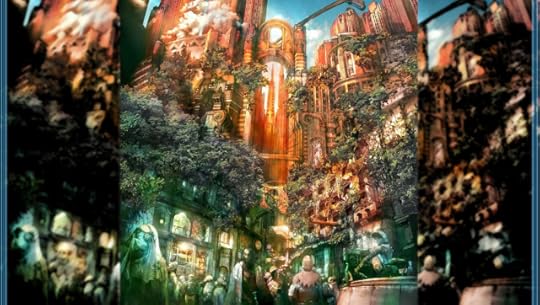 Each Final Fantasy game falls under various science fantasy sub-genres. The first is steam punk, being the loosest of these (and why I didn’t do a post explaining it) with the simple description of “technology in a past setting, yet outside of historical context,” or what I like to call, “historically doesn’t make sense.” Think Wild Wild West, Steam Boy or Back to the Future III. The second is cyber punk, described generally as “high tech, low life,” or what I like to call, “our present world.” Third is space opera, described as “mankind has reached the stars,” or what I like to call, “an optimist’s idea of the future.” The last is post-apocalypse, which really speaks for itself, but what I still like to call, “our likely future.” The thing to remember is not what I like to call these sub-genres, but rather the associated plot tools that are borrowed and dominantly used for each of the Final Fantasy games.
Each Final Fantasy game falls under various science fantasy sub-genres. The first is steam punk, being the loosest of these (and why I didn’t do a post explaining it) with the simple description of “technology in a past setting, yet outside of historical context,” or what I like to call, “historically doesn’t make sense.” Think Wild Wild West, Steam Boy or Back to the Future III. The second is cyber punk, described generally as “high tech, low life,” or what I like to call, “our present world.” Third is space opera, described as “mankind has reached the stars,” or what I like to call, “an optimist’s idea of the future.” The last is post-apocalypse, which really speaks for itself, but what I still like to call, “our likely future.” The thing to remember is not what I like to call these sub-genres, but rather the associated plot tools that are borrowed and dominantly used for each of the Final Fantasy games.
Let’s start with the plot tools for Final Fantasy VI. This is the story given at the start of the game: “Long ago, the War of the Magi reduced the world to a scorched wasteland, and
Magic simply ceased to exist.” Reads a lot like post-apocalypse, doesn’t it? Funny that, let’s keep reading: “1000 years have passed… Iron, gunpowder and steam engines have been rediscovered, and high technology reigns.” And that sounds a lot like steam punk. I think that this beginning text speaks for itself as far as FFVI’s plot tools go, borrowing from the first and last sub-genres on the list. Moving on.
Now for the ever popular Final Fantasy VII. Where does the setting start off? Midgar is described as: “a post industrial sprawl where those on the plate live in luxury with access to technology that harnesses Shinra’s mako power, but those below live in squalor and poverty.” So high tech, low life you say? Sounds like cyberpunk to me. Well… classic cyber punk anyway, unlike the more recent cyber punk stories which focuses more on the Internet, VR and AI. There are also vague elements of steam punk, space opera and post-apocalypse here and there, but nothing as prevalent.
Considering I spent most of my last post praising Final Fantasy VIII for not having a bridging plot tool to be science fantasy but just being pure sci-fan, I don’t think I need to say much more than make a few excuses for the space opera elements in it, because they do go to a space base *wooh*, but it has nothing to do with how the world gained its sci-fi elements. If there was one plot tool for how Esthar became so technologically advanced you could mention the Lunar Tear event as being post apocalyptic…ish, but even that’s a little vague. FFVIII is by far the closest game to being pure science fantasy in the series.
(Spoiler) Next is Final Fantasy IX, which has the setting aesthetics most closely resembling the steam punk sub-genre, the airships being the most obvious element but also the frilly cloth and vested Victorian clothing worn by the main character and all over the world. However, the main plot tool that brought the main character and villain to this setting was in fact space opera. That’s right, the protagonists are vessels for souls from an alien planet who are sent to terraform the place, the mists from the terraforming device powering the airships and other technologies in this steam punk fantasy world.
I’ve said it once and I’ll say it again, Final Fantasy X is the best post-apocalypse fantasy game. It’s a fantasy world created from a sci-fi world by an apocalypse, making it pretty clear that post-apocalypse is the key plot tool that made this game science fantasy. That being said, there are elements of steam punk that are shown through the forbidden machina that seem very out of place in such an archaic looking world. In a way, these plot tools are about the same as the ones used to bridge the FFVI world into the science fantasy genre, but the world of FFX is a lot prettier.
Final Fantasy XI, like most online games, is pretty inconsistent as far as its plot elements go (the same can be said for FFXIV). They wanted it to appeal to the widest audience after all, yet it somehow ended up appealing to less people because the online gaming community wasn’t their entire audience. That being said, this is one of the few Final Fantasy games passed FFVI that I can’t say falls under the science fantasy genre. This is because, like the earlier Final Fantasy titles, the dominant aesthetics of the setting resemble fantasy a little too much, despite the technology and the odd object in it. Adding an airship didn’t make the earlier Final Fantasy games steam punk, and nor does it for this one, but if that’s the case…
What about Final Fantasy XII? Airships are a the highest sci-fi element in that game as well, so should that be counted? Technically yes. The aesthetics are modernized enough to have rail roads, skyscrapers and wait for it… freaking hover buses! That’s right, Archadia’s technology is advanced enough to have what they call ‘skyferries’. If that’s not sci-fi tech, I’m not sure what is. If not for the airships and steam punk pirate styles being a keystones for the look of the world, this would be a close silver to FFVIII for being pure science fantasy. But alas, the aesthetics are not advanced enough for the setting not to have that steam punk feel, nor does it effect the development of the plot… well, not entirely.
So there we have it, for the Final Fantasy fans at least, you can’t say I didn’t try to define my terms when calling certain books (as well as my own) science fantasy. My publisher may try to call Stuck in the Game cyberpunk, which has the connotation of being sci-fi, but I think I’ve made a good enough argument for why it fits under a genre with the word ‘fantasy’ in it. *Nervous Laughter* See everyone, my blog is called fantasy and anime, but that doesn’t mean I can’t pull off some mental flipflops to shill my book on it, right?
*Eyes shift quickly from side to side* RIGHT?!


Perfect Science Fantasy
 My favorite game series are the Final Fantasy games, particularly the later games (VI-XII). The reason for this is that, unlike the earlier games that use mostly classic fantasy aesthetics, they brilliantly utilize science fantasy through each of the bridging genres I have gone through in the previous posts. For instance, Final Fantasy X is the best example of a post-apocalypse fantasy I can think of, where VI, VII, IX and XII, borrow many elements from the steam, cyberpunk, and space opera genres. So why worry about the genre ‘science fantasy’ if you can simply put them under these sub-genres? Because, as anyone who’s played these games can tell you, they never really fit under just one of them.
My favorite game series are the Final Fantasy games, particularly the later games (VI-XII). The reason for this is that, unlike the earlier games that use mostly classic fantasy aesthetics, they brilliantly utilize science fantasy through each of the bridging genres I have gone through in the previous posts. For instance, Final Fantasy X is the best example of a post-apocalypse fantasy I can think of, where VI, VII, IX and XII, borrow many elements from the steam, cyberpunk, and space opera genres. So why worry about the genre ‘science fantasy’ if you can simply put them under these sub-genres? Because, as anyone who’s played these games can tell you, they never really fit under just one of them.
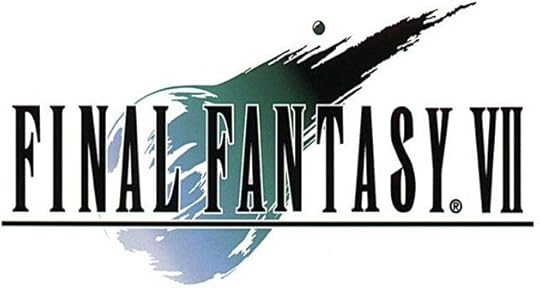 There is one Final Fantasy, which despite its bad ratings is my favorite as it is the closest example of a science fantasy story that I have experienced without using any of the previously mentioned sub-genres as a bridge to get there. That’s Final Fantasy VIII. Take a fantasy world and then let it age to the point that technology progresses until parts of the world resemble science fiction but still somehow keeps that Gothic fantasy, swords and sorcery charm. How? A contrast between the more post-resonance modernized Galbadia and post-information age of Esthar. These two nations are so distinct that one can’t help but see how their technology has advanced through the magic of their world.
There is one Final Fantasy, which despite its bad ratings is my favorite as it is the closest example of a science fantasy story that I have experienced without using any of the previously mentioned sub-genres as a bridge to get there. That’s Final Fantasy VIII. Take a fantasy world and then let it age to the point that technology progresses until parts of the world resemble science fiction but still somehow keeps that Gothic fantasy, swords and sorcery charm. How? A contrast between the more post-resonance modernized Galbadia and post-information age of Esthar. These two nations are so distinct that one can’t help but see how their technology has advanced through the magic of their world.
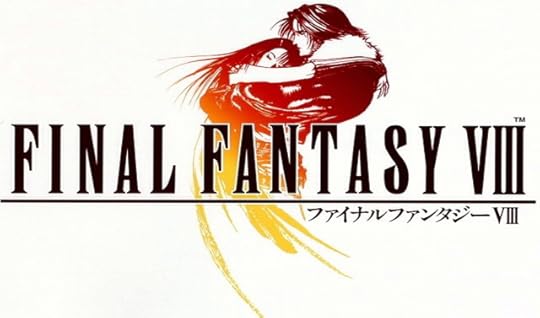 Instead of bridging the sci-fi elements through the plot tools of these sub-genres, Final Fantasy VIII simply lets time take its natural course on the fantasy world so that technology is advanced by utilizing the magic which the world was founded on. This shows a ballance between the fantasy and sci-fi elements that is rarely seen in any medium. Some might say that the other later Final Fantasy games do this as well, but there is no post-apocalypse elements in VIII like in VI and X, no steam or cyber punk elements like VII, IX and XII, only advanced tech, the most pure science fiction plot tool there is, added to a modernized fantasy setting. Future speculation of superior tech in a fantasy world with no gimmicks or commentary, how could science fantasy be more perfectly portrayed?
Instead of bridging the sci-fi elements through the plot tools of these sub-genres, Final Fantasy VIII simply lets time take its natural course on the fantasy world so that technology is advanced by utilizing the magic which the world was founded on. This shows a ballance between the fantasy and sci-fi elements that is rarely seen in any medium. Some might say that the other later Final Fantasy games do this as well, but there is no post-apocalypse elements in VIII like in VI and X, no steam or cyber punk elements like VII, IX and XII, only advanced tech, the most pure science fiction plot tool there is, added to a modernized fantasy setting. Future speculation of superior tech in a fantasy world with no gimmicks or commentary, how could science fantasy be more perfectly portrayed?
 In case these distinctions are too loose to be recognized by Final Fantasy fans, I will double down by extending this analysis with some analyses of the later games in the series. Remember these arguments are based upon the idea that a genre is mostly dictated by the aesthetics of a story’s setting. The science fantasy genre is used as an in-betweener for stories that contains elements of both fantasy and sci-fi, or has transferred from one genre to another by a specific sub-genre used as a plot tool, thus leaving a resembling effect or look in the setting. But where sub-genres bring these stories into the realm of science fantasy, it is easier to simply call a shovel a shovel and name it after that sub-genre instead. Referring to my original statement, this is why science fantasy is such a difficult genre to pin down.
In case these distinctions are too loose to be recognized by Final Fantasy fans, I will double down by extending this analysis with some analyses of the later games in the series. Remember these arguments are based upon the idea that a genre is mostly dictated by the aesthetics of a story’s setting. The science fantasy genre is used as an in-betweener for stories that contains elements of both fantasy and sci-fi, or has transferred from one genre to another by a specific sub-genre used as a plot tool, thus leaving a resembling effect or look in the setting. But where sub-genres bring these stories into the realm of science fantasy, it is easier to simply call a shovel a shovel and name it after that sub-genre instead. Referring to my original statement, this is why science fantasy is such a difficult genre to pin down.
 In summary, because the Final Fantasy games borrow from so many of these science fantasy sub-genres, my next post is going to be on analyzing the dominant elements of the later Final Fantasy games. Because each of them contain many of the sub-genres mentioned above, I will try to explain how they each fit into the science fantasy genres aesthetically and story-wise… ENJOY!
In summary, because the Final Fantasy games borrow from so many of these science fantasy sub-genres, my next post is going to be on analyzing the dominant elements of the later Final Fantasy games. Because each of them contain many of the sub-genres mentioned above, I will try to explain how they each fit into the science fantasy genres aesthetically and story-wise… ENJOY!


Perfect Science Fantasy (Final Fantasy Analysis)
 My favorite game series are the Final Fantasy games, particularly the later games (VI-XII). The reason for this is that, unlike the earlier games that use mostly classic fantasy aesthetics, they brilliantly utilize science fantasy through each of the bridging genres I have gone through in the previous posts. For instance, Final Fantasy X is the best example of a post-apocalypse fantasy I can think of, where VI, VII, IX and XII, borrow many elements from the steam, cyberpunk, and space opera genres. So why worry about the genre ‘science fantasy’ if you can simply put them under these sub-genres? Because, as anyone who’s played these games can tell you, they never really fit under just one of them.
My favorite game series are the Final Fantasy games, particularly the later games (VI-XII). The reason for this is that, unlike the earlier games that use mostly classic fantasy aesthetics, they brilliantly utilize science fantasy through each of the bridging genres I have gone through in the previous posts. For instance, Final Fantasy X is the best example of a post-apocalypse fantasy I can think of, where VI, VII, IX and XII, borrow many elements from the steam, cyberpunk, and space opera genres. So why worry about the genre ‘science fantasy’ if you can simply put them under these sub-genres? Because, as anyone who’s played these games can tell you, they never really fit under just one of them.
 There is one Final Fantasy, which despite its bad ratings is my favorite as it is the closest example of a science fantasy story that I have experienced without using any of the previously mentioned sub-genres as a bridge to get there. That’s Final Fantasy VIII. Take a fantasy world and then let it age to the point that technology progresses until parts of the world resemble science fiction but still somehow keeps that Gothic fantasy, swords and sorcery charm. How? A contrast between the more post-resonance modernized Galbadia and post-information age of Esthar. These two nations are so distinct that one can’t help but see how their technology has advanced through the magic of their world.
There is one Final Fantasy, which despite its bad ratings is my favorite as it is the closest example of a science fantasy story that I have experienced without using any of the previously mentioned sub-genres as a bridge to get there. That’s Final Fantasy VIII. Take a fantasy world and then let it age to the point that technology progresses until parts of the world resemble science fiction but still somehow keeps that Gothic fantasy, swords and sorcery charm. How? A contrast between the more post-resonance modernized Galbadia and post-information age of Esthar. These two nations are so distinct that one can’t help but see how their technology has advanced through the magic of their world.
 Instead of bridging the sci-fi elements through the plot tools of these sub-genres, Final Fantasy VIII simply lets time take its natural course on the fantasy world so that technology is advanced by utilizing the magic which the world was founded on. This shows a ballance between the fantasy and sci-fi elements that is rarely seen in any medium. Some might say that the other later Final Fantasy games do this as well, but there is no post-apocalypse elements in VIII like in VI and X, no steam or cyber punk elements like VII, IX and XII, only advanced tech, the most pure science fiction plot tool there is, added to a modernized fantasy setting. Future speculation of superior tech in a fantasy world with no gimmicks or commentary, how could science fantasy be more perfectly portrayed?
Instead of bridging the sci-fi elements through the plot tools of these sub-genres, Final Fantasy VIII simply lets time take its natural course on the fantasy world so that technology is advanced by utilizing the magic which the world was founded on. This shows a ballance between the fantasy and sci-fi elements that is rarely seen in any medium. Some might say that the other later Final Fantasy games do this as well, but there is no post-apocalypse elements in VIII like in VI and X, no steam or cyber punk elements like VII, IX and XII, only advanced tech, the most pure science fiction plot tool there is, added to a modernized fantasy setting. Future speculation of superior tech in a fantasy world with no gimmicks or commentary, how could science fantasy be more perfectly portrayed?
 In case these distinctions are too loose to be recognized by Final Fantasy fans, I will double down by extending this analysis with some analyses of the later games in the series. Remember these arguments are based upon the idea that a genre is mostly dictated by the asthetics of a story’s setting. The science fantasy genre is used as an in-betweener for stories that contains elements of both fantasy and sci-fi, or has transferred from one genre to another by a specific sub-genre used as a plot tool, thus leaving a resembling effect or look in the setting. But where sub-genres bring these stories into the realm of science fantasy, it is easier to simply call a shovel a shovel and name it after that sub-genre instead. Referring to my original statement, this is why science fantasy is such a difficult genre to pin down.
In case these distinctions are too loose to be recognized by Final Fantasy fans, I will double down by extending this analysis with some analyses of the later games in the series. Remember these arguments are based upon the idea that a genre is mostly dictated by the asthetics of a story’s setting. The science fantasy genre is used as an in-betweener for stories that contains elements of both fantasy and sci-fi, or has transferred from one genre to another by a specific sub-genre used as a plot tool, thus leaving a resembling effect or look in the setting. But where sub-genres bring these stories into the realm of science fantasy, it is easier to simply call a shovel a shovel and name it after that sub-genre instead. Referring to my original statement, this is why science fantasy is such a difficult genre to pin down.
 In summary, because the Final Fantasy games borrow from so many of these science fantasy sub-genres, my next posts are going to be on analyzing the dominant elements of the later Final Fantasy games. Because each of them contain many of the subgenres mentioned above, I will try to explain how they each fit into the science fantasy genres aesthetically and story-wise… ENJOY!
In summary, because the Final Fantasy games borrow from so many of these science fantasy sub-genres, my next posts are going to be on analyzing the dominant elements of the later Final Fantasy games. Because each of them contain many of the subgenres mentioned above, I will try to explain how they each fit into the science fantasy genres aesthetically and story-wise… ENJOY!


September 3, 2016
Science Fantasy (Via Space Opera)
 A realization hit me while writing this post. Like how the age of the main characters can dictate the demographic of a book, the setting, or at least the aesthetics of the setting, generally dictates the genre of the book. With The Matrix being used as the last example and Star Wars about to be used as the example of this one, I was beginning to think that there was little difference between science fantasy and light sci-fi. That’s when it hit me, the settings of The Matrix and Star Wars are what makes them sci-fi, where more fantasy settings based in the “science” (like my book) are what makes a story more science fantasy.
A realization hit me while writing this post. Like how the age of the main characters can dictate the demographic of a book, the setting, or at least the aesthetics of the setting, generally dictates the genre of the book. With The Matrix being used as the last example and Star Wars about to be used as the example of this one, I was beginning to think that there was little difference between science fantasy and light sci-fi. That’s when it hit me, the settings of The Matrix and Star Wars are what makes them sci-fi, where more fantasy settings based in the “science” (like my book) are what makes a story more science fantasy.
 With Space Opera being the bridging genre, two popular examples of this came to mind, those being Matthew Stover’s Hero Die and Anne McGaffery’s Dragons of Pern series – particularly Dragonsdawn. Where both use space travel to another planet to get to the fantasy setting, either through a slow symbiosis of alien elements or being a tourist in an already formed fantasy world, the space travel itself is the bridging plot tool that gets the the characters to the fantasy setting. As I mentioned in my Heroes Die review, this shows a perfect example of how science fantasy can be cleanly done through world jumping, but at the same time, to make sure the setting turns out fantasy-ish, it can seem a bit contrived to make this new world be like how we imagine a fantasy setting.
With Space Opera being the bridging genre, two popular examples of this came to mind, those being Matthew Stover’s Hero Die and Anne McGaffery’s Dragons of Pern series – particularly Dragonsdawn. Where both use space travel to another planet to get to the fantasy setting, either through a slow symbiosis of alien elements or being a tourist in an already formed fantasy world, the space travel itself is the bridging plot tool that gets the the characters to the fantasy setting. As I mentioned in my Heroes Die review, this shows a perfect example of how science fantasy can be cleanly done through world jumping, but at the same time, to make sure the setting turns out fantasy-ish, it can seem a bit contrived to make this new world be like how we imagine a fantasy setting.
 To compare this to other space opera sci-fi with just made up alien planets, in the things like the Ender or Old Man’s War series, these planets don’t resemble what people would consider fantasy with characters that resemble fantasy races and fantasy plot tools. In this regard, Star Wars could be considered science fantasy, for many of the plot tools such as a Jedi and their powers are very fantasy-ish. But, as was distinguished at the beginning of this post, Star Wars has a more sci-fi setting and sci-fi looking races, thus dictating the genre that most people would identify it as (the same with The Matrix).
To compare this to other space opera sci-fi with just made up alien planets, in the things like the Ender or Old Man’s War series, these planets don’t resemble what people would consider fantasy with characters that resemble fantasy races and fantasy plot tools. In this regard, Star Wars could be considered science fantasy, for many of the plot tools such as a Jedi and their powers are very fantasy-ish. But, as was distinguished at the beginning of this post, Star Wars has a more sci-fi setting and sci-fi looking races, thus dictating the genre that most people would identify it as (the same with The Matrix).
Because my setting is more fantasy-ee than The Matrix, Stuck in the Game will be my replacement for the last one, although I’m sure there are better examples out there, and Pern and Heroes Die for this one. If anyone can think of better examples, do tell me.


September 1, 2016
Science Fantasy (Via Cyberpunk)
I was trying to think of a decent story I could write to bridge science fiction to fantasy through the cyberpunk genre, but then realized that the best possible science fantasy story using cyberpunk already exists, that being my own book, Stuck in the Game.
Hah, yeah, as though I’m that egotistical. No, although it would be a bit more obvious if the simulation was of a medieval setting, the perfect inclination of science fantasy through cyberpunk is obviously The Matrix, which is one of my favorite action films.



